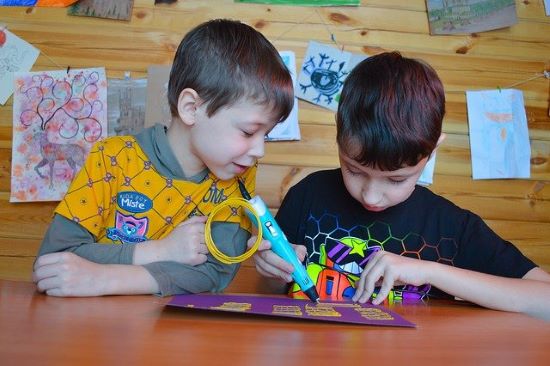
Some parents want their children to start learning English from a very young age. Teaching English from a young age will make them adapt to the language easily and improve their future social life. They won’t be struggling to fit in a place where other kids exchange conversation in English. It will boost their confidence and help them become bilingual.
Easier said than done as kids at such a young age tend to focus less; they are so full of energy that they hardly sit still, let alone learn another language on purpose.
You must be wondering how to teach them English from a young age. Well, you can teach them because the teachings do not need to be only through books. There are various English learning activities for 5-year-olds to improve their language skills.
Memory Games
Memory games are the best way to introduce your kid to the English language. There are various memory games available online; you can also practise some physically. You can put some things on a table and make your kid look at it once, then cover it, and tell your kid to answer their name in English.
You can write some names of fruit or animals on a board, ask your kid to look at them once, and write the names in their book without looking at the board. You can also take your kid shopping with you and write the name of every item on your list in English. And when you buy those things, inform your kid what is what. Then take them shopping again and ask them if they remember the name of the items bought last time.
Listening Activities
Kids remember better what they listen to; it is called auditory memory. You can help your kids learn English by making them listen to various music or rhymes. Yes, the English rhymes would be of most help for the basics. Try to talk with them in English as much as possible, but ensure not to use any jargon words. They might listen to you and try to imitate you.
You can play the story chain game with your kid. Start a story and then ask them to continue it. Make them listen to English songs that are easy to understand. Later discuss what was being said in the song. This will help them inculcate the habit of listening and understanding the English language through the entertaining medium of music. Also, discuss with them the kind of instruments played in the music.
Also Read: Phonics Books for Kids: Books to Help Them Win Their New Reading Quests
Reading Activities
Reading is one of the best habits which you can inculcate in your kid. It will not only help them improve their vocabulary but would also provide them lessons for future life. For the kids, you have to give them simple storybooks to read. The stories in the book shouldn’t be more than 2 pages.
Make your kid read one story every day, and explain what the moral of the story is. The language in storybooks for kids is very easy to understand. So after they are done reading the story, explain the meaning of various words in the text.
Along with storybooks, you can also introduce comic books and poems to your kid. Comic books like Tinkle and Champak are easy to read. This will also make them good readers, and they won’t face much difficulty learning English in school.

Daily Sessions
You need to fix a daily routine of English sessions with your kid at home. Taking a session daily for a maximum of 15 minutes with your kid is enough. They cannot sit and focus for a longer period; however, you can increase the session time as your child grows and their ability to focus increases.
Within this short session, you can take on various English speaking activities for kids like teaching how to read or write by telling a story, listening to something or playing a fun English game. Such activities won’t make your child feel that they are learning. They will get entertained and won’t be hit by boredom from learning.
Play Fun Activity Games
All the activities suggested here would seem fun for your child, but you would probably know that a game is a real deal as a parent. Playing fun games with your child is the best way to teach them English. They would enjoy the games and subconsciously revise all the English words you intend to teach them through the games.
Now you are deciding on which game would be the best to play with your child? There are many games to choose from, it is up to you to decide which would be in the best interest of your child. You can play a card game, board game, word games, and many such games are also available online.
You can also make flashcards with the picture of an object on one side and its English name on the other to test your child’s memory and teach them that word through pictures. Making them play such games more and more will increase their interest and make their vocabulary stronger.
Talk With Your Child
Kids are known to imitate whatever their parents do, so you should start having English conversation activities for kids for a while every day. Listening to you speaking English will encourage them to imitate you and speak the language the way you do.
Fix up a conversation time with your kids and engage them in replying in English. It shouldn’t concern you if you aren’t fluent in the language; your enthusiasm will motivate the kid to speak more than your language expertise.
Show them different objects in the house and give the English name of each. Tell them the names of their favourite food in English; introduce them to the names of fruits and vegetables by giving them a tour of the market or the pantry of your kitchen. There is no better way to pick up a language than speaking it, so encourage your kid to speak in English as mucha s possible.

Conclusion
These English activities for kids will make them bilingual and help them get comfortable with English medium teaching and learning. If you want more insights into making English for kids a fun activity, you should check the website of the The Real School Of Montessori. The innovative learning methods and resources at The Real School Of Montessori will help you make your kid’s first round of introduction to the English language a fun experience.
Also Read: Phonics Sounds for Kids: Importance of Phonics and How to Teach Phonics to Kids







